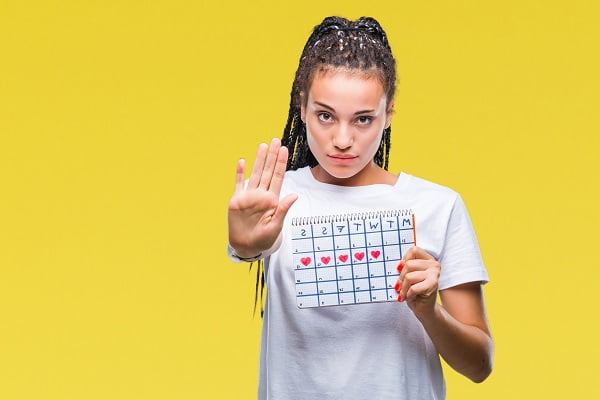Menstruation: An International Taboo
- Updated on: Jun 26, 2024
- 3 min Read
By
- Published on Oct 3, 2019


Menstruation, also referred to as periods, is a normal vaginal bleeding in women that occurs every month. Every month, woman body prepares itself for pregnancy. The uterus sheds its lining if no pregnancy occurs. The menstrual blood is the mixture of blood and tissues from inside the uterus. It is expelled out of the body through the vaginal opening.
Menstrual cycle usually starts between eleven and fourteen years of age and continue until menopause at about age 45 and 55. Periods usually last from 5 to 7 days. Besides vaginal bleeding during menstruation, a woman may have:
- abdominal or pelvic pain
- lower back pain
- bloating and breasts tenderness
- food cravings
- a headache and fatigue
- irritability and mood swings
Learn more about menstruation
A portrait of the menstruating woman in society
Menstruation is a vital signal, which means, it may be an indication of the overall health?of a woman similar to other bodily functions like heart rate. Menstruation is often condemned in our society and treated as a taboo. This taboo is built up due to the traditional viewpoint in impurity of menstruating women and unwillingness to discuss periods normally.
It was studied and analyzed that many religions worldwide consider menstruating woman as ‘ritually unclean’. The society flinches from discussing the menstruation. Numerous problems are being faced by young girls. They have a tendency to hold various misconceptions due to lack of sufficient information about it.
People must have healthy discussions about periods to generate awareness about various aspects of women health associated with normal menstruation cycles. Words have healing power.?Words and discussions may nourish our thoughts about our bodies and their valuable place in the society.
Have you ever given a second thought concerning young girls, who are approaching menarche (the first occurrence of a menstrual cycle) who don’t know that they are going to bleed because of healthy bodily function and are not aware what they can do? They are ashamed of this natural process because of a lack of general awareness. Even parents are not aware about how to educate their children about menstruation. We should talk about menstruation more often in our society so that we can fetch it out of shadows.
Portrayal of menstruating women in social media
Menstruation may be irritating, but this should not make a woman fragile and incapable, regardless of what pictures are cast in the social media. However, if we search images about menstruating women in social media, there are more chances of seeing women portrayed as helpless, annoyed, emotional, and disturbing.
According to a newly conducted study, this representation negatively depicts menstruation in our society. It was found that online websites, in reality, strengthen the detrimental perceptions of periods. It is necessary to campaign against the problematic social stigmas around periods. The research exposed that search engines, stock image sites, and educational health pages are all responsible for continuing the thought that menstruation makes women helpless, emotional, and repulsive.
The findings are not astonishing when we consider images of women in their menstrual cycles over and over again depicting them crippled in pain, women looking weak, upset, or vulnerable. Cramps can be painful during periods. According to a survey, many women believe that these images are not representative of their own periods and blame that these pictures make them feel ashamed of their periods.
The research has proved that the consistent stream of exaggeration, unrealistic pictures is leaving those who experience periods feeling ashamed, embarrassed and hesitant to speak about it.
Menstruation does not mean women are helpless or weak
There is a broad spectrum of opinions to understand menstruation even if cramps and pain are involved. A menstruation does not make any person less strong, great or beautiful. Society need to evolve and think differently about a natural bodily function that affects half of the world’s population.
These false theories and unreliable pictorial representation exaggerate menstrual cycle to the conclusion that women are ashamed to discuss the issue even among friends and family members.
Women are repeatedly shown bent up and clutching their stomach to portray menstruation. Women must be transparent about their menstrual cycle in order to fight back against these negative and shameful stereotypes and social stigmas. People and social media must consider that not all periods are equal. The truth is that menstruation does not mark barriers for women from living their lives and they are nothing to be ashamed about.











